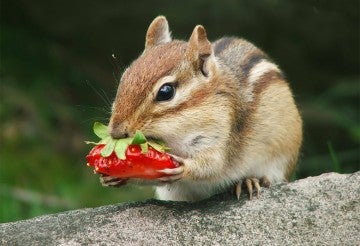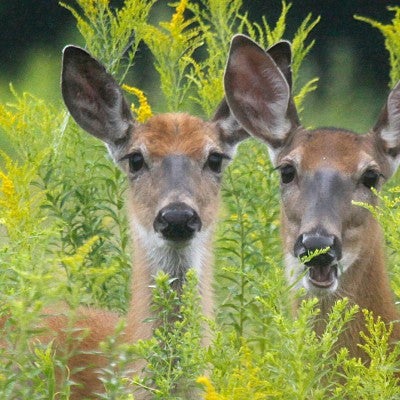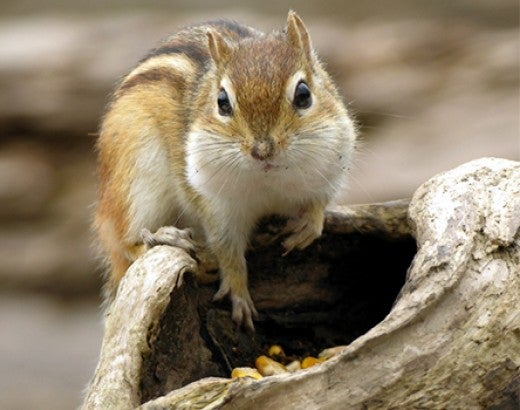Sadly, because of their penchant for nibbling in vegetable gardens and digging burrows, these small members of the squirrel family are sometimes viewed as pests by uninformed homeowners. In reality, chipmunks are solitary and territorial, and their burrows are too small to undermine structures.

Like two built-in grocery bags, chipmunks’ cheek pouches expand to hold and transport food. To empty the pouches, they squeeze them with their front feet, depositing the bounty in their burrows for later snacking.

Along with providing a food source for owls, hawks, foxes and other predators, chipmunks help nurture trees from the ground up; their feces spreads a fungus that enriches the soil and helps trees and other plants absorb water and nutrients.

Every day, more and more wildlife habitats are lost to the spread of development. Your gift can help create more humane backyards to protect all animals.



